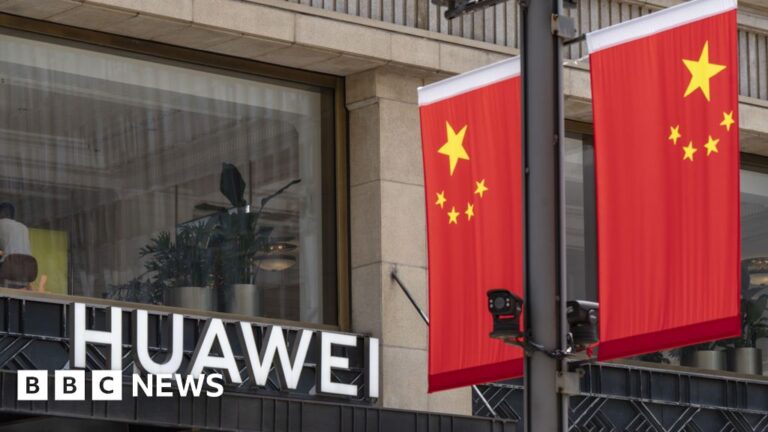In a major transfer that underscores the escalating tensions between two international superpowers, the U.S. authorities has introduced the revocation of particular licenses granted to American chipmakers, immediately impacting their means to export sure items to the technological behemoth, Huawei.
Whereas the Commerce Division stopped in need of detailing the licenses in query, this improvement follows intently on the heels of Huawei’s unveiling of a synthetic intelligence laptop furnished with Intel chips. This act by Huawei seems to have triggered the current crackdown, spotlighting the intricate dance of commerce and nationwide safety issues that characterize U.S.-China relations.
Intel, a key participant within the U.S. chipmaking area, elected to not touch upon the matter when approached by BBC Information. Efforts to elicit responses from each Huawei and one other trade large, Qualcomm, have been made, although suggestions is pending on the time of writing. For the reason that initiation of restrictions in 2019, below the premise of Huawei’s purported connections with the Chinese language navy, the USA has markedly tightened the exportation of laptop chips and different applied sciences to Huawei.
“We’ve got revoked sure licenses for exports to Huawei,” confirmed the Commerce Division in a succinct assertion issued on Tuesday. But, the paradox surrounding which licenses had been particularly revoked continues to foster a local weather of hypothesis and anticipation throughout the tech trade.
This announcement has not gone with out political strife, with U.S. lawmakers, notably from the Republican echelon, leveling criticism at President Joe Biden’s administration for what they understand as a reactive stance. Notably, Rep. Elise Stefanik took to social media to claim that this measure wouldn’t have been undertaken with out Republican oversight pressuring the administration into motion.
Regardless of enduring important setbacks from U.S. commerce embargo measures, Huawei has demonstrated resilience and indicators of a potent revival. The launch of the Mate 60 Professional smartphone in August stands as a testomony to Huawei’s enduring ingenuity and adaptableness within the face of adversity.
Huawei discovered itself ensnared on the U.S. “entity listing” below the presidency of Donald Trump in 2019. This designation requires U.S. firms to safe governmental approval earlier than exporting or transferring sure applied sciences to the listed entities, particularly when there are issues of potential navy utility by the recipient nation.
At that juncture, a number of U.S. entities, Intel and Qualcomm included, managed to acquire licenses to provide Huawei with expertise distinct from 5G capabilities. The continued saga between the U.S. and Chinese language expertise companies unfolds towards a backdrop of accelerating geopolitical friction, with the U.S. imposing stringent restrictions on a slew of Chinese language tech conglomerates in recent times.
This month additionally noticed President Biden enacting laws poised to ban the operation of the video app TikTok inside U.S. borders until divested by its Chinese language mum or dad firm. In retaliation, TikTok has initiated authorized proceedings to contest the laws.
Beijing has vociferously denounced Washington’s marketing campaign towards its technological enterprises, decrying these actions as “financial bullying.” This ongoing saga encapsulates the fraught relationship between financial interdependence and nationwide safety imperatives, illustrating the advanced challenges that lie on the coronary heart of the U.S.-China tech battle.
